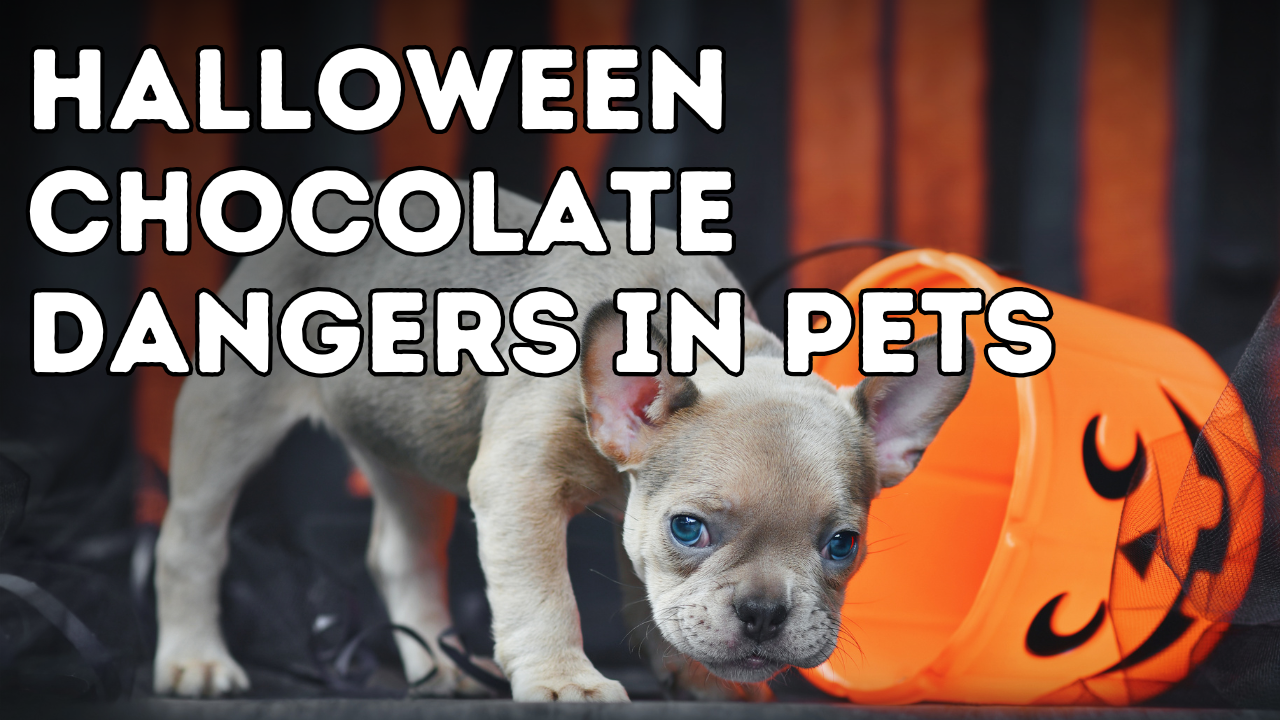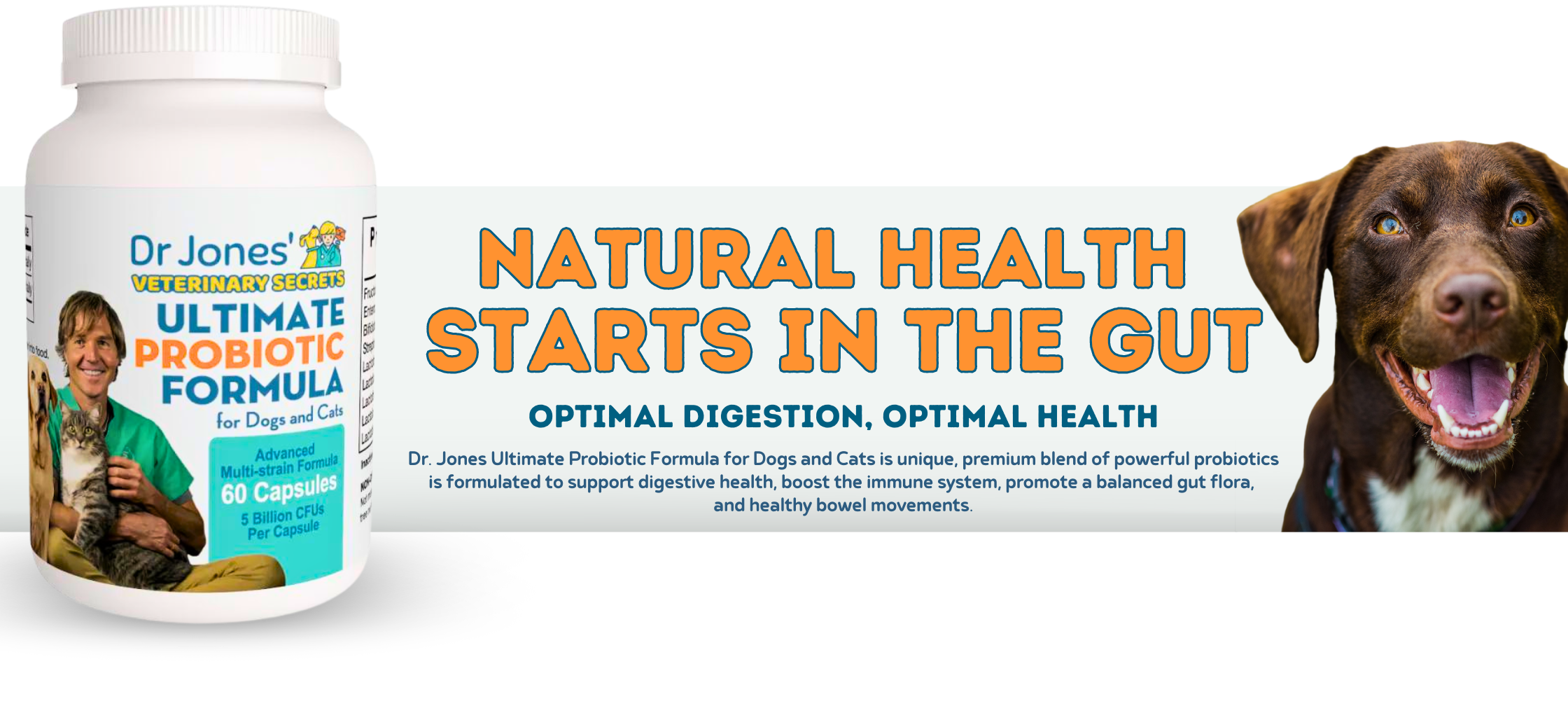Halloween Chocolate Dangers: What Every Pet Parent Should Know

Halloween and Chocolate Toxicity in Dogs: What Every Pet Owner Needs to Know
Happy Halloween! I’m Dr. Andrew Jones, and every year on this day in my veterinary clinic, I would see at least one case of chocolate toxicity in a dog. It’s a timely reminder for all pet owners to be cautious with chocolate around their pets, especially with the abundance of treats during the holiday season.
Why Chocolate Is Dangerous for Dogs
In most cases, the chocolate that dogs manage to eat only causes mild digestive upset, especially with candy bars, which often contain minimal chocolate. However, with the growing popularity of treats made from dark chocolate, I’m seeing more cases of serious poisonings in pets. Dark chocolate has a much higher concentration of theobromine—a compound that is toxic to dogs. In some cases, even a small amount can lead to serious symptoms.
What Happens After Ingesting Chocolate?
For many dogs, ingesting chocolate results in minor stomach upset, such as vomiting or diarrhea. However, if your pet has eaten a substantial amount or has existing digestive issues, this could be more than just a one-time upset.
A Probiotic Solution for Pets with Sensitive Stomachs
If your dog has ongoing digestive issues, one of the key steps to managing and improving this is with a high-quality probiotic supplement. Probiotics help support a healthy digestive system, especially for dogs with sensitive stomachs that may react to occasional indulgences or certain foods.
I’m proud to share that we now offer an exceptional multi-strain, high-CFU probiotic designed for both dogs and cats: Dr. Jones’ ULTIMATE Probiotic Formula for Dogs and Cats. This blend has been effective for many pets, helping to maintain a balanced and resilient digestive system.

As always, be mindful this Halloween season and keep your pets safe from treats that aren’t meant for them.

Chocolate Toxicity in Dogs: What Every Pet Owner Needs to Know
Hello, I’m Dr. Andrew Jones. Today, I want to discuss a common but serious issue that affects many pets—chocolate toxicity in dogs. As more people choose dark chocolate for its health benefits, we’re seeing an increasing number of cases of chocolate poisoning in dogs. Dark chocolate, in particular, is about three times more dangerous to dogs than milk chocolate. Let’s explore why chocolate is toxic to dogs, recognize the signs of poisoning, and review what you should do if your dog ingests chocolate.
The Dangerous Components in Chocolate
The substances in chocolate that are toxic to dogs are caffeine and theobromine. Theobromine, in particular, is found in high concentrations and is responsible for most of the severe symptoms in dogs. When a dog ingests chocolate, the theobromine impacts various systems in their body, including:
- Digestive System
- Nervous System (brain)
- Cardiovascular System (heart and lungs)
- Kidneys
Recognizing the Symptoms of Chocolate Poisoning
Symptoms of chocolate toxicity in dogs can vary based on the amount and type of chocolate consumed, as well as the time since ingestion. Common symptoms include:
- Gastrointestinal Distress: Stomach upset, bloating, vomiting, and diarrhea.
- Behavioral Changes: Hyperactivity, restlessness, and increased heart rate.
- More Severe Signs: Tremors, seizures, increased breathing rate, elevated body temperature (hyperthermia), and potentially coma in extreme cases.
Toxic Doses of Chocolate
To help you understand the severity, here are some guidelines on toxic doses:
- Mild Toxicity: Clinical signs may appear as low as 20 mg/kg. For example, a 10-lb dog would only need 100 mg of chocolate to show symptoms.
- Severe Toxicity: More serious symptoms can start at 40 mg/kg, meaning a 10-lb dog would have trouble if it consumed 200 mg of chocolate.
- Fatal Dose: The dose of chocolate that can be fatal is around 60 mg/kg.
Different types of chocolate contain varying amounts of theobromine:
- Milk Chocolate (5 oz bar): 250 mg theobromine
- Dark Chocolate (5 oz bar): 600 mg theobromine
- Baking Chocolate (1 oz square): 400 mg theobromine
- Dry Cocoa Powder (1 oz): 700 mg theobromine
For instance, a small poodle weighing 10 lbs could be fatally poisoned by consuming a milk chocolate bar with 250 mg of theobromine. In contrast, a larger breed, such as a 75-lb Golden Retriever, would need to consume about 8 milk chocolate bars to reach a toxic dose. Dark and baker’s chocolate are far more toxic, so it would only take about three dark chocolate bars to put a 75-lb dog at risk.
What to Do If Your Dog Eats Chocolate
-
Determine the Amount and Type of Chocolate: If your dog eats any chocolate, first assess how much was consumed and what type. If the dose of theobromine is over 20 mg/kg, you should take immediate action.
-
Inducing Vomiting: If your dog has ingested a potentially toxic amount of chocolate, inducing vomiting can help. The method I recommend is giving hydrogen peroxide—1 teaspoon per 10 lbs of body weight. If your dog hasn’t vomited after 10 minutes, repeat once more but do not exceed two doses. Always consult your veterinarian if you’re uncertain, especially if your dog shows serious symptoms such as tremors or seizures.
-
Online Resources: There are online Chocolate Toxicity Calculators available, which can help assess the risk and guide your response.
Remedies for Mild Gastrointestinal Upset
If the amount ingested was small and your dog has only mild symptoms, there are a few remedies you can try at home:
- Peppermint Tea: An old remedy for upset stomachs, peppermint tea can be given at ¼ cup per 10 lbs, three times daily.
- Homeopathic Remedy (Arsenicum): This can help with minor food poisoning symptoms. Use 30C, dosing every 2 hours for 1-2 days.
- Pepcid (Famotidine): This over-the-counter acid reducer is safe for dogs. The dose is 5 mg (½ tablet) per 10 lbs, twice daily for 1-2 days.
Preventive Care
In most cases, symptoms of chocolate toxicity are mild—unless a small dog consumes a significant amount of dark chocolate. Always be cautious; keep chocolate out of reach, and be prepared to take action if needed. For dogs prone to ongoing gastrointestinal issues, a quality probiotic can make a big difference. My Ultimate Probiotic Formula for Dogs and Cats is specially formulated with pet-specific probiotics that help with digestive health.
P.S.: Be proactive, and remember that even small amounts of dark chocolate can be dangerous for dogs.

